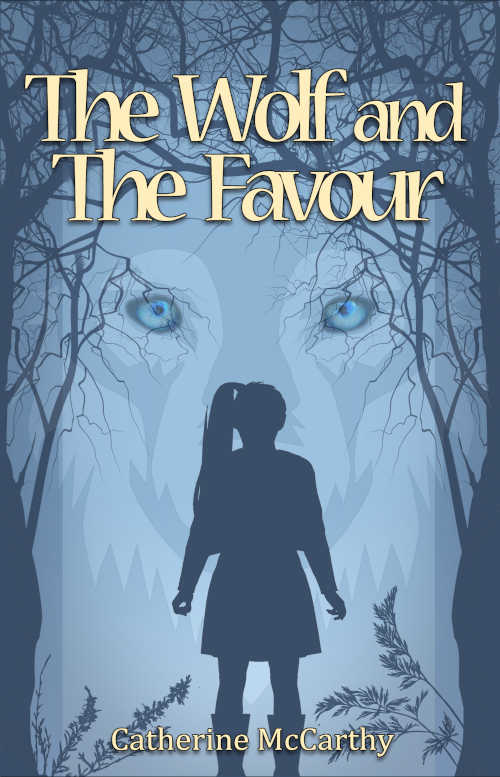6 tips for self-editing your manuscript

Self-editing your manuscript can be tedious, but it comes with many benefits. This author gives us her best tips on how to do it.
by Catherine McCarthy
 At the beginning of my writing journey, I self-published my work, therefore my personal editing journey has been paved with newbie errors and lessons well learned. I’m fortunate in that I now work with several publishers and editors, and in doing so have learned an awful lot. I’m more than happy to share my tips with those of you who are new to writing, and I hope you will find them useful.
At the beginning of my writing journey, I self-published my work, therefore my personal editing journey has been paved with newbie errors and lessons well learned. I’m fortunate in that I now work with several publishers and editors, and in doing so have learned an awful lot. I’m more than happy to share my tips with those of you who are new to writing, and I hope you will find them useful.
I want to begin by stating that while the ability to self-edit is vital, it does not in any way undermine the benefits of hiring a good editor or proofreader.
Having said that, there is a lot you can do yourself before handing your work over to a professional. Self-editing skills are a vital part of publishing. No reader should pay for something slapdash. Not only is it unfair, but you run the risk of gaining a reputation for putting out poor-quality work, and that is not what you want, is it?
Books & Buzz Magazine is where writing pros spill their secrets! Subscribe now for free
We all have our own methods when it comes to writing and editing. Some people write several drafts, and that is fine. Personally, I only ever write one draft, but I work on improving that draft over and over again before sending it to anyone else, for example, a beta reader.
One final note before I begin: it is not the responsibility of a beta reader to proofread your work. By all means allow them to highlight errors, but the responsibility of cleaning up your manuscript is yours, not theirs.
No reader should pay for something slapdash. Not only is it unfair, but you run the risk of gaining a reputation for putting out poor-quality work.
So, now for my personal tips:
1. Be prepared to do a minimum of four or five rounds of editing and revision before sending it to someone else to read. During each round, focus on something specific, e.g., line editing, weak sentences, grammar and punctuation, repetition, etc.
2. Be mindful of words you personally tend to overuse (often referred to as filter words). Build up a list, then during one of your editing rounds, use the “find and replace” tool and highlight those words in different colors. Delete or change those you don’t need or those that are repeated too often. Repetition and overuse of filter words such as saw, could, wondered, that, then, etc., can slow the pace of your story and seriously weaken it.
3. Be aware of adverbs. I’m not in the camp of a total ban, but if you use them, make sure they earn their place. The same goes for qualifiers (for example: that, very, so, etc.) Overuse of these words can result in passive voice. Oh, and while we’re on the subject of passive voice, aim to use powerful verbs rather than those from the verb family “to be,” i.e., is, was, etc. There are lots of articles on passive voice available online, and they are well worth a read.
4. Our eyes get used to seeing text in one particular format, so if you’re using Times New Roman and font size 12, for example, change the whole manuscript to a different font—and perhaps font size—then read it again. Or, another similar tip is to change the color of the font. You’ll be surprised how many errors you’ll find by doing this. It’s a visual trick.
5. If you always edit on the same device, e.g. your laptop, then for one round of editing use a different device, a Kindle or a phone, perhaps. It’s all about encouraging the brain to stray from its comfort zone. Better still, if you can afford the ink, print it out.
6. And this one is essential …
Read your manuscript aloud!
Yes, the whole thing, and preferably twice: once to yourself and once to an audience. Your audience could be your partner or even the cat or a teddy bear, whatever takes your fancy. When you read, it’s vital you do so with expression. Imagine you’ve been invited to read your story to a live audience. You wouldn’t read in a monotone voice, would you?
Hate the sound of your own voice? Tough, because trust me, this is by far the best way to improve your script. By doing this you are far more likely to hear things such as repetition, poor sentence fluency, and flow.
I’m fortunate in this respect, because having been a primary school teacher, I’m used to reading to an audience. I’m also fortunate in that my husband is a good listener and an astute critic. Whether it’s a short story or a novel, once I feel the piece is ready, I always read it through to him.
Have a notepad and pen or phone memo at hand, and note all the changes you want to make. Then, as soon as possible, while they’re still fresh in your mind, go back and do those edits.
And there you have it. Good luck, and happy editing!
Catherine McCarthy is the author of the novellas Immortelle and Mosaic, as well as the novel A Moonlit Path of Madness. Her short fiction has been published in various anthologies and magazines, including those by Black Spot Books, Brigids Gate Press, and Dark Matter Ink. In 2020 she won the Aberystwyth University Prize for her short fiction, a competition judged by the assistant editor of the Times Literary Supplement. A former primary school teacher, she now weaves dark tales from her farmhouse in West Wales. Time away from the loom is spent hiking the Welsh coast path or huddling in an ancient graveyard reading Dylan Thomas or Poe.
You can visit Catherine at her website and connect with her on Twitter.